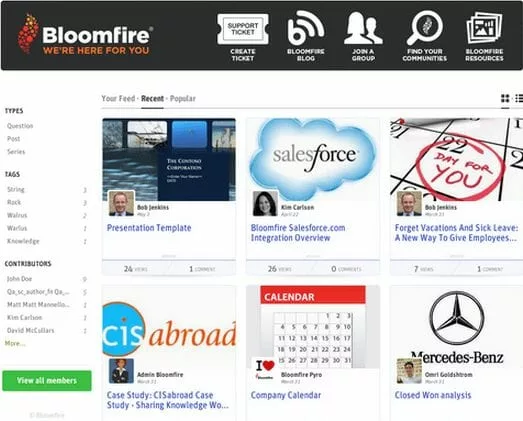A Brief History Of Intranets

The first intranets began to emerge in the mid-1990s. They were basic, static web sites that provided a central location for employees to access company information.
In 1996, Frontier Technologies Corp. introduced Intranet Genie, the first commercial turnkey intranet software bundle to offer a diverse suite of communication tools in one package. This included mail and news clients, a DNS server, HTML editing tools, a phone list, a help desk system, a purchase order application, document sharing, a search function, and more.
While it was absolutely revolutionary at the time, it was notoriously difficult to install and wasn’t very user friendly by today’s standards.
Intranet software solutions continued to evolve over time, adding tools such as employee directories, dynamic forms, sub-sites, message boards, instant chat capabilities, and much more.
While the original intranets such as Intranet Genie were client-server applications that used a web browser as an interface, intranets soon became entirely web-based employee portals, as most are today.
To see how intranets have evolved, check out our eBook, “The New Social Intranet: How We Collaborate in the Digital Age.” It explains the essential role intranets play in the rise of social technologies and delves in modern intranets solutions.

10 Best Knowledge Management Practices in 2026

Different Types of Knowledge: Implicit, Tacit, and Explicit

Striking the Right Balance Between AI and Human Customer Service

Estimate the Value of Your Knowledge Assets
Use this calculator to see how enterprise intelligence can impact your bottom line. Choose areas of focus, and see tailored calculations that will give you a tangible ROI.

Take a self guided Tour
See Bloomfire in action across several potential configurations. Imagine the potential of your team when they stop searching and start finding critical knowledge.